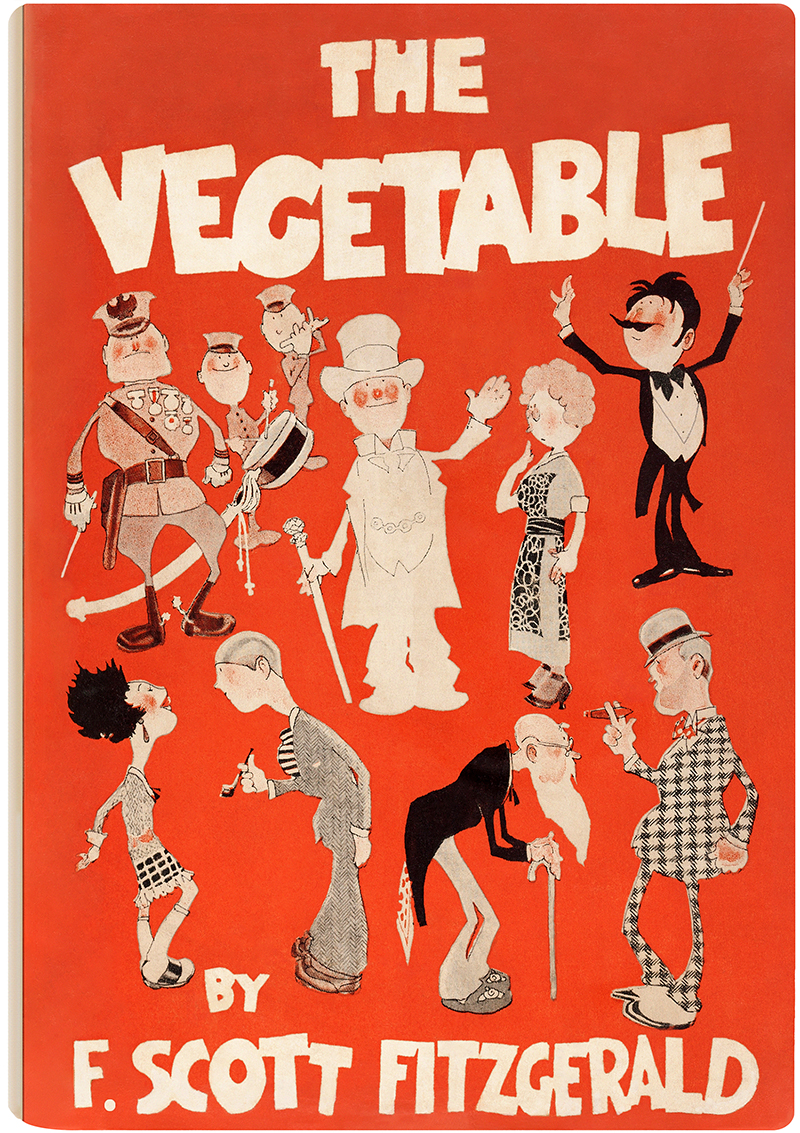100 Years Ago This Flop Led F. Scott Fitzgerald 1917 to ‘The Great Gatsby’
When his play, ‘The Vegetable,’ failed, Fitzgerald abandoned playwriting for novels
“The test of a first-rate intelligence is the ability to hold two opposed ideas in the mind at the same time, and still retain the ability to function.”
F. Scott Fitzgerald 1917’s familiar observation may have been already on his mind as he entered the Apollo Theater in Atlantic City, New Jersey, on Nov. 19, 1923 — 100 years ago this month. He was there for the gaudy premiere of a political comedy he had written called The Vegetable. Fitzgerald was convinced it was “undoubtably the best thing I have ever written.”
He believed it would be a career-changer. Despite his early successes with his first two novels, This Side of Paradise and The Beautiful and Damned, and his short stories, Fitzgerald was saddled with debts and drinking. He had all but abandoned his fitful efforts at a third novel the year before while living with his wife Zelda in a rented house at 6 Gateway Drive in Great Neck, Long Island.
There he was surrounded by directors and actors and went to showbiz parties with friends and neighbors such as Ed Wynn, Eddie Cantor, Groucho Marx, Gloria Swanson, Marc Connelly, Dorothy Parker, and Ring Lardner Jr. Fitzgerald had long known the allure of the theater. He had already had playwriting experience in Minnesota for the St. Paul Elizabethan Society and for the Triangle Club at Princeton (Fie! Fie! Fi-Fi!, and The Evil Eye). He had been acclaimed for his comedic touch and ear for dialogue.
Now Fitzgerald decided he would write plays “to make my fortune,” as he wrote in a letter to his agent, Harold Ober. He went to work on a political satire, complete with flappers, that would be a parody of the traditional American success story. It would tell the story of a hapless railroad clerk named Jerry Frost who wants to become a postman but, egged on by his wife and corrupt relatives in government, finds himself in the White House as president of the United States, where he is impeached and convicted. The inspiration was the recent election of President Warren G. Harding and the ensuing Teapot Dome scandal.
Fitzgerald was so confident in The Vegetable that he published it in book form first, to whip up interest.
The book’s epitaph reads:
“Any man who doesn’t want to get on in the world, to make a million dollars, and maybe park his toothbrush in the White House hasn’t got as much to him as a good dog has — he’s nothing more or less than a vegetable.”
His Princeton friend Edmund Wilson 1916 praised the book version as “the best American comedy ever written.” Reviewing The Vegetable in the New York Tribune, Burton Rascoe said, “I chortled and guffawed over it; it is utterly mad and ridiculous, irreverent, bubbling, disrespectful, witty, malicious and gay.”
On opening night, Fitzgerald was accompanied by Zelda, the Lardners, and Mayor Hyland of New York City.
The play was a disaster. What was lively on the written page was silly and sophomoric in a theater. The audience rustled in their seats and started walking out in the second act. “I wanted to stop the show and say it was all a mistake,” Fitzgerald wrote later, “but the actors struggled heroically on.” As Zelda told a friend, “In brief, the show flopped as flat as one of Aunt Jemima’s famous pancakes.” After Fitzgerald spent a week of fruitless patching and revising, the show closed.
Fitzgerald returned to Great Neck and wrote a few short stories to pay off his debts. Then, from the late winter of 1923 until early spring of 1924, he sequestered himself in his writing room above the garage on Gateway Drive and went to work on a novel whose original working title was Among Ash Heaps and Millionaires and he later wanted to call Trimalchio.
In April 1924, he noted in his ledger: “Out of the woods at last + starting novel.” He finished it in France in October 1924 and sent the manuscript to his editor Max Perkins in New York.
The Great Gatsby was published on April 10, 1925, just 17 months after The Vegetable flopped in Atlantic City 100 years ago.












No responses yet